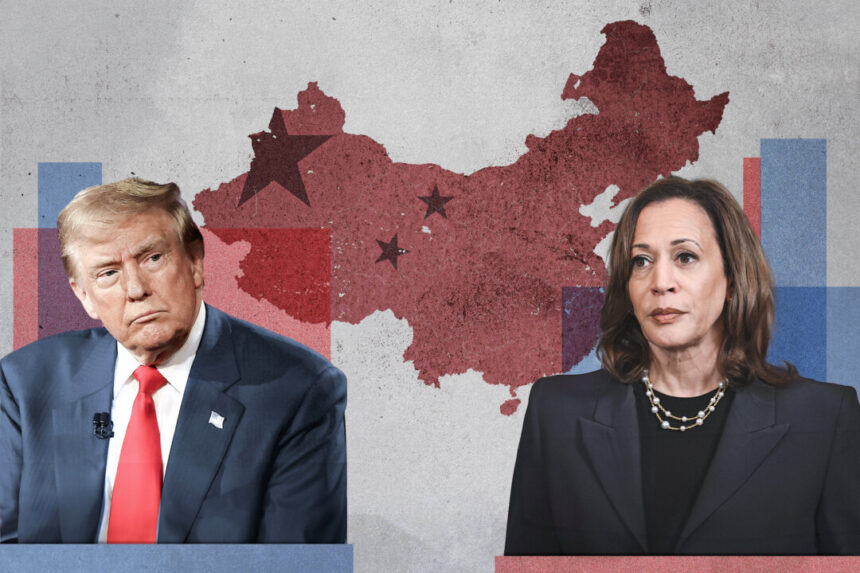The current approach to China began with former President Donald Trump. Identifying China as a “strategic competitor,” the Trump administration took a new approach to U.S.–China relations. It imposed broad tariffs on Chinese goods, controlled Chinese access to American semiconductor technology, and pivoted national security strategy from the Middle East to China and Russia.
The Biden administration continued many of the same policies, and Washington’s China policy will likely continue to be hawkish. However, the two candidates will also have distinct approaches, owing to their personal differences and depending on whom they appoint to key positions.
Republican presidential candidate and former President Donald Trump is broadly expected to resume his China policies in the first term.
Democratic nominee and Vice President Kamala Harris has indicated no sign of divergence from the Biden administration’s China policies.
Trade
The two candidates agree on controlling strategic goods and technologies, investing in innovation, re-shoring supply chains, and combating Beijing’s unfair trade practices.

The CMA CGM White Shark cargo ship prepares to dock at Port Miami as the United States and China continue their trade war, in Miami Beach on May 16, 2019. China was one of the top trading countries in 2018 at the port.
Joe Raedle/Getty Images
Stephen Ezell, a vice president at the Information Technology and Innovation Foundation think tank, believes Trump will take the pledges in the Republican platform seriously, particularly revoking China’s permanent normal trade relations status, because Beijing has failed to comply with its commitments as a member of the World Trade Organization, he told The Epoch Times.

During the final months of his term, Trump raised the idea of separating the United States and Chinese economies, known as decoupling. His former trade representative, Robert Lighthizer, a rumored candidate for the next secretary of the Treasury, advocates the same approach.
James Lewis, a senior vice president at the Center for Strategic and International Studies think tank, said decoupling is already happening.
As to whether a future Harris administration would differ from Biden’s approach, Lewis told The Epoch Times that he would watch the pace of decoupling and the measures adopted to reinforce it.
Security
Despite a growing consensus in Washington on the need to counter the Chinese regime’s aggressive actions, particularly in the Indo-Pacific, differences remain on how to avoid military conflicts.
Trump emphasizes maintaining peace by showing military strength. During his term, he focused on modernizing nuclear weapons and stopped the trend of cuts to the U.S. nuclear stockpile.
 Source link
Source link






